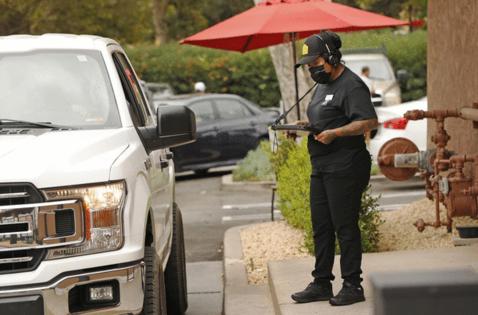Can AI-powered drive-throughs save the day for fast food operators?
Published in Science & Technology News
It didn't take long for Harshraj Ghai to respond to the impact of California's new $20 an hour minimum wage for his 3,700 fast-food employees.
Ghai and his family operate 180 Burger Kings, Taco Bells and Popeyes chicken restaurants across the state, and one of the first things they did after the law took effect April 1 was to start capping workers' hours to avoid overtime pay. Also, they're closing some outlets a little earlier, and opening others a bit later to avoid paying workers for less profitable periods.
But the biggest thing Ghai and his family are doing does not directly involve workers at all: They've speeded up and expanded their use of technology, especially AI.
Right now, they've moved up by several years their plans to install self-service kiosks at all of their locations, including 25 out of state.
But what has Ghai most hopeful about offsetting the higher labor costs is to have AI handle customers' orders made at the drive-through. He's testing the machine-learning system this month at a few locations and hopes to roll it out company-wide by this time next year.
Drive-throughs of course are quintessentially California, with its car culture and fast lifestyle. And now, with AI coming on to the scene in a big way, the state is emerging as ground zero for what many analysts see as the next big thing in the world of fast food and drinks.
Not that AI-led drive-through is quite ready for prime time. As it is today, the system can have trouble with people's accents and ambient noise, making it hard to recognize speech and translate it into text. Pilot programs run by McDonald's and others thus far often have backed up the AI technology with an employee, like the Wizard of Oz man behind the curtain. The unseen worker from as far away as the Philippines monitors and sometimes intervenes to complete an order if AI falters.
Even so, Ghai thinks that once the kinks are worked out, it'll be a godsend for fast-food operators like him.
"It has the potential of being the most impactful," says Ghai, 39, whose Indian immigrant father, Sunny, started the family business in 1998 by buying a failing Burger King in San Jose, where he was an assistant manager.
What pushed the envelope for businesses like the Ghais' was California's sudden 25% hike in the minimum wage for the fast-food industry's half-million or so workers in the state.
...continued
©2024 Los Angeles Times. Visit at latimes.com. Distributed by Tribune Content Agency, LLC.







Comments